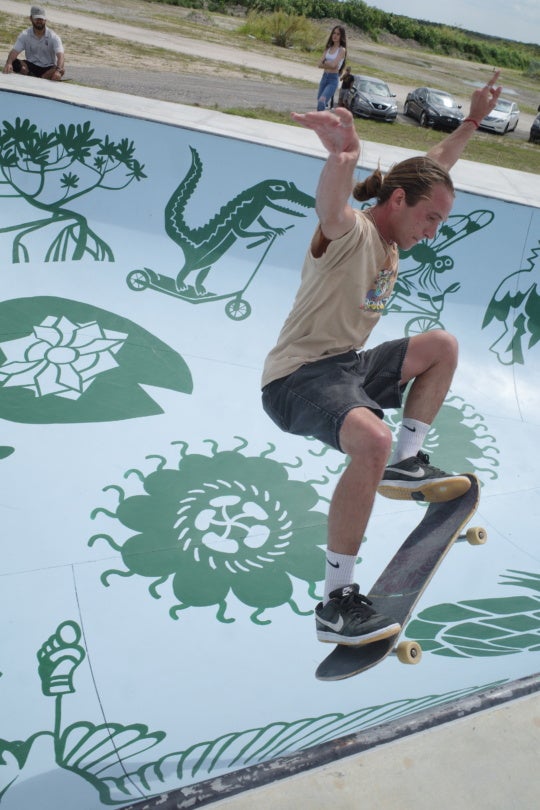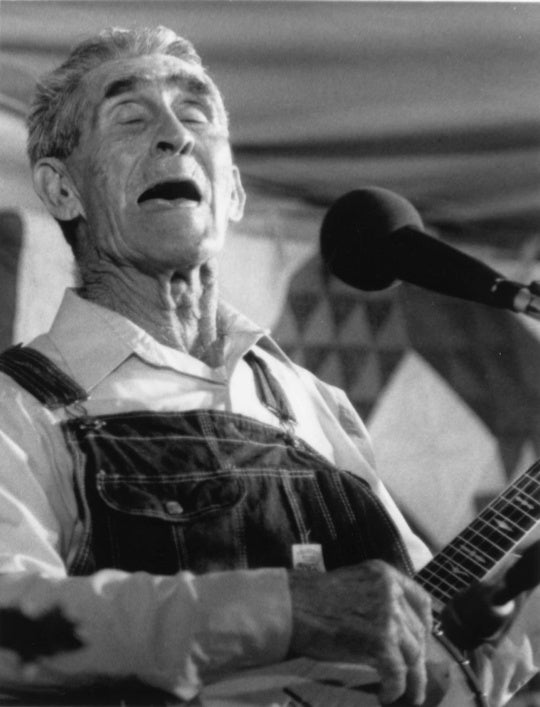
After hearing Shanequa Gay speak at the Hammonds House, Atlanta Contemporary, and the forum on race and feminism presented by Smoke School of Art and tART Collective, I was impressed by her eloquence and manner of presentation. Being very clear of purpose, Gay consistently captivates her audience with the saliency of her personal narrative, which connects her artwork to current events. Visiting her studio at the Goat Farm on a beautifully sunny day, the light shone through the open window onto some of the paintings hanging on the wall in front of her desk from her acclaimed series, The FAIR GAME Project. As per usual, Gay was very articulate in sharing her story with me.
When Gay started exhibiting her work, she received comments from men asking, “Where are the men in the paintings.” She had “unconsciously chosen to give black women centrality in [her] art,” which excluded men and created a sacred space for women, as depicted in the series The Southern Way, in which women are portrayed in their Sunday churchgoing best. Gay doesn’t purport to be a feminist, but through her work she does believe she is giving black women power, though she eventually did add a few men to her work. Gay’s collectors are mostly women ages 35 through 65. She was concerned that her collector base would abandon her when she started The FAIR GAME Project, but they haven’t.

In light of the prevalent police brutality against black men, the fear Gay faces when her 16-year-old son goes out into the world is a grave concern shared by many parents of black children. After hearing the horror stories of many people who had been beaten or killed by police officers, Gay had a dream of men being chased. And in 2008, The FAIR GAME Project was born. As stated on her website, “The FAIR GAME Project is inspired by the artist’s belief that African American males are being hunted like wild game.” Inspired by the work of Kara Walker and Aaron Douglas, Gay employs black silhouettes against chromatic backgrounds of deer-men being chased.

Her goal is to develop a visual language that might make people uncomfortable but that helps us articulate how police brutality is affecting black men and the greater population. This body of work has brought her the most acclaim to date. She relished the opportunity to show The FAIR GAME Project in Chattanooga, where two Jewish women approached her to ask what they could do to help. In an art world where black women are typically marginalized, Gay realizes the support from people like these two women, who might not be directly affected by the atrocities that inform her work, is just as important as the support coming from those whose lives are directly affected by such horrific incidents.
Among Gay’s collectors are First Lady Michelle Obama, Atlanta City Councilman Kwanza Hall, and actor Samuel L. Jackson. In addition to being the First Lady’s collection, Gay was the selected illustrator for the 2013 First Lady’s Luncheon Hostess Gift. She says, “It feels amazing because these are prominent figures. People are actually buying. Doesn’t get any better than that.” Gay doesn’t ignore the fact that many artists create work without acquiring any collectors at all. Part of her success is that she thoroughly believes in herself and encourages other artists to take themselves seriously too. “I had to care about my work before anybody else would. I had to produce good work,” she asserts.

As Gay notes, many of the artists who were showing with her when she started exhibiting are no longer making work. Many do not have the support systems to sustain the challenges of the art world. Like Gay, they are told to be safe and get an education that will land them a job with an established company. She attended the Art Institute of Atlanta to study graphic design and fashion marketing because she wanted to make a living. Making art was a hobby to earn some extra money during the holidays. Things changed when a friend, Feliz Martin, asked why she didn’t share her work with other people. After Gay made a business plan, doors began to open. “It’s an obstacle course, but so is life,” she says.
Being consistent and productive are two qualities that allowed her to nab the Creatives Project Fellowship, which provides her with a studio at the Goat Farm, a space outside of her home to work on her painting and network with other artists. “It’s nice to be at the Goat Farm, having conversations with other creatives,” she says.

Gay wishes for a city that better supported its artists. “As opposed to taking away funding, how can Atlanta be more inclusive to outsiders, and create opportunities for people who are really good and not based on who you know.” She longs for the existence of an art district in Atlanta like those of the past, in places such as New York’s SoHo or Harlem. “Not where patrons come to buy, but where artists live.”
Although serious about her craft, Gay is not opposed to having a little fun with her artwork. Just as our interview was coming to a close, I noticed a new painting behind her. The painting is something of a hybrid between her collection of female characters in The Southern Way and The FAIR GAME Project. It depicts a black woman in a headscarf and turn-of-the-20th-century attire pulling the leg of a deer-man figure. She calls it What if Our Ancestors are Conspiring Against Us? She says she was just toying with the idea of whether or not our ancestors would be proud of how we’re turning out.

Gay graduated summa cum laude from the Savannah College of Art and Design, and will enter the MFA program at Georgia State University this fall. When Gay is not in her studio working on paintings, she’s teaching. At the High Museum of Art, she facilitates children’s art workshops, and at Drew Charter School she talks with students as a mentor about how to develop their work.
Shanequa Gay’s got game and she’s not afraid to share it: “Go full throttle, knowing you’re going to get knocked down,” she says. “Keep climbing.”
Shantay Robinson earned her MFA in Writing from the Savannah College of Art and Design. She has written artist profiles for AFROPUNK and Urban Lux Magazine. She was a participant in the first cycle of BURNAWAY’s Art Writers Mentorship Program.




